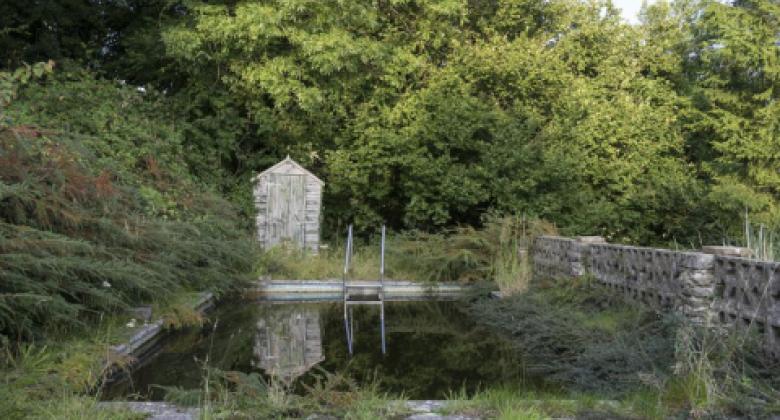What's a Natural Swimming Pool, and Why Would You Want One?

Ah, summertime. Lounging in the sun, donning sunglasses, sipping lemonade, wading through the murky, algae-filled pool water...
Wait, what?
If you’ve never heard of a "natural swimming pool," don’t worry: You’re in good company. Sure, they’ve been popular over in Europe since the mid-'80s, but the term "natural pool" has been missing from most Americans’ vocabulary until more recently.
So, what exactly is the natural pool trend all about—and why are we starting to take note over on this side of the un-chlorinated pond?
According to Allen Schnaak, Vice President of Dealer Development for natural pool constructor BioNova, it’s better to first understand what a natural pool is not.
"This isn't a 'dig a hole, let it rain, jump in' scenario," he tells us with a laugh. "Natural pools are actually a lot like normal pools! They’re just... natural."
It’s true: Natural pools do share an awful lot with the pools you already know and love (besides, you know, the lily pads and irregular, rocky perimeters). And, much to the delight of parents everywhere, they’re also developed under the same industry-recognized pool construction standards.
The biggest difference is simply that natural pool water hasn’t been chlorinated or otherwise chemically filtered. Instead, it’s purified via a connected side pool (or "regeneration zone") filled with gravel and aquatic plants that clean the water naturally. Newer models commonly replace that second pool with space-saving "biofilm reactors," which filter out nutrients in the water and effectively eliminate the food source of any potential algae populations.
So why would anyone want one of these pools, anyway?
Well, for the same reason you might want to eat organic tomatoes or use natural skincare products: They’re clean. No chemicals will enter your skin or body, and you can sleep peacefully at night knowing you’re not harming the environment. What’s more, thanks to recent technological improvements (particularly those nifty biofilm reactors), the cost per square foot of a natural pool is roughly the same as that of a traditional chlorinated pool... and that’s not including the priceless "wow" factor.
Obvious benefits aside, though, most natural pool owners would argue that the choice was less about a pool—and more about a lifestyle.
"At the end of the day, our customers desire a life that promotes environmental responsibility and compassion for our planet. They want to change their entire outlook," Schnaak says. "And that’s what a choice like this can do."
Country Living
Apr 11, 2019
https://www.countryliving.com/gardening/a27077691/natural-swimming-pools/
